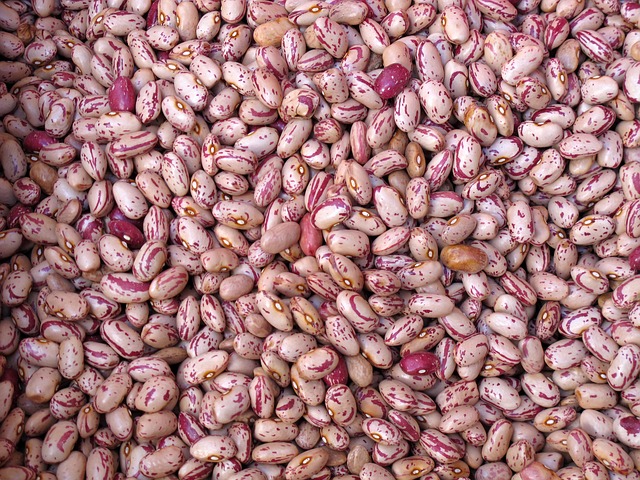
This might be shocking to you, but certain types of beans can be quite poisonous. Did you know that red beans were legally prohibited from being imported into South Africa because of “their potential toxicity to humans”? The main cause is a toxin called ‘phytohaemagglutinin’ or kidney bean lectin. This is a sugar based protein (glycoprotein) which is found in many types of beans such as cannellini beans. However, red kidney beans contain the highest concentrations of this toxin. It only takes a few beans to cause nausea, vomiting, diarrhea, abdominal pains.
Kidney beans, black beans and navy beans are high in oligosaccharides. Our bodies can not produce the enzyme necessary to break down these complex sugars. When we eat beans, the oligosaccharides ferment in the lower intestine producing carbon dioxide and methane gases.
Antinutrients in Beans and Legumes
Lectins
As Wikipedia explains, one example of lectin reaction in humans:
Some kinds of raw beans and especially red and kidney beans, contain a harmful toxin (the lectinPhytohaemagglutinin) that must be destroyed by cooking. A recommended method is to boil the beans for at least ten minutes; undercooked beans may be more toxic than raw beans.[8] Cooking beans in a slow cooker, because of the lower temperatures often used, may not destroy toxins even though the beans do not smell or taste ‘bad’[8] (though this should not be a problem if the food reaches boiling and stays there for some time).
Phytic Acid and Mineral Deficiencies
The most known anti-nutrient found in grains, beans, nuts and seeds is phytic acid (or phytate). Phytic acid, or phytate, is found in plant seeds. It serves as the main storage form of phosphorus in the seeds.Phytates actually bind to the magnesium, calcium, zinc and iron in your intestines and take them OUT of our bodies.. Phytic acid can also block protein absorption. Regulars consumption of foods high in phytic acid can lead to serious mineral deficiencies and cause a many health problems such as allergies, bone loss. hormone disruption, anemia, digestive irritability, impaired immune function, and etc.
Enzyme Inhibitors
Plant seeds also contain enzyme inhibitors that protect the plant from predators. Enzyme inhibitors are very difficult to digest. When foods are not completely digested because of enzyme inhibitors, bacteria in the large intestine try to do the job, and this can cause discomfort, bloating, and gas.
They also slow down the important enzyme activity in your body such as the uptake of trypsin, an enzyme responsible for digesting protein. Trypsin inhibitors in legumes interfere with protein digestion and may cause pancreatic disorders.
References:
Hintz HF, Hogue DE, Krook L. Toxicity of red kidney beans (Phaseolus vulgaris) in the rat. J Nutr. 1967 Sep;93(1):77-86
http://www.krispin.com/lectin.html
http://www.westonaprice.org/health-topics/living-with-phytic-acid/
This content will be shown after all post